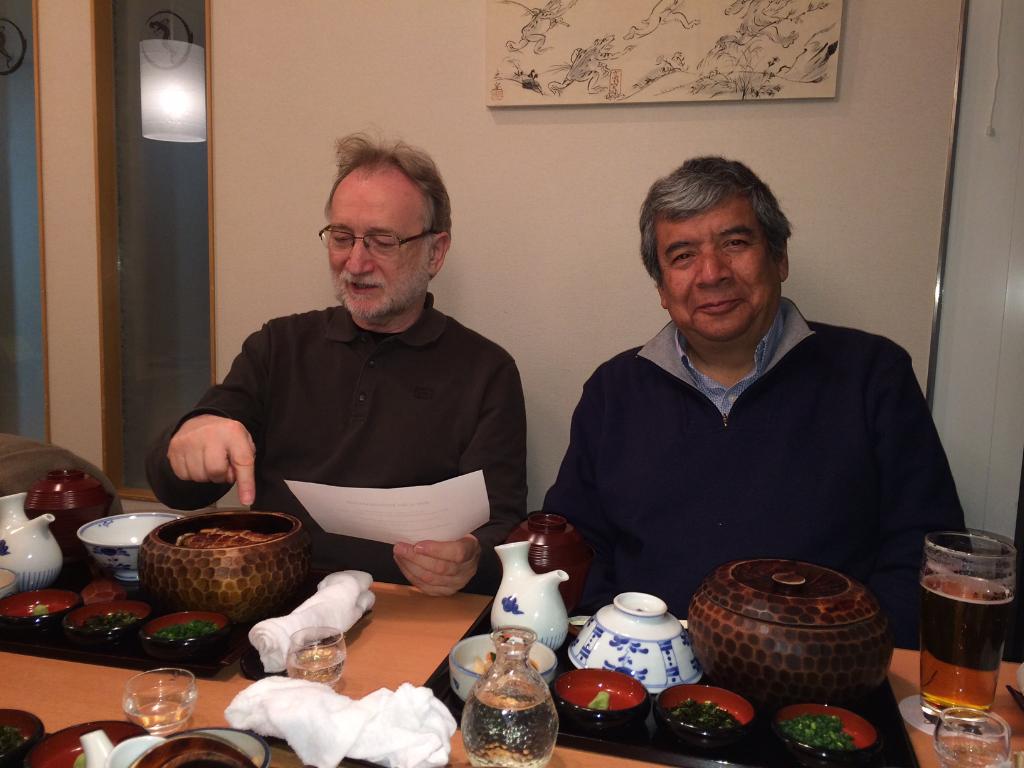Invited Speakers
Invited Speakers

Bernard Chazelle (external link, opens in new window) , Princeton University (Paul Erdős Memorial Lecture)
Title: Particle Systems, Geometry, and Dynamic Networks
Abstract: The dynamics of particle systems governed by the simplest interaction rules can be dauntingly complex. I will review a number of new analytical tools developed recently to lift some of the mystery. The talk will cover a broad range of geometric, combinatorial, algebraic, and algorithmic ideas but it will be entirely self-contained.
Bio: Bernard Chazelle is Eugene Higgins Professor of Computer Science at Princeton University, where he has been on the faculty since 1986. His current research focuses on the “algorithmic nature” of living systems. A professor at the Collège de France in Paris in recent years as well as a member of the Institute for Advanced Study in Princeton, he received his PhD in computer science from Yale University in 1980. The author of the book, "The Discrepancy Method," he is a fellow of the American Academy of Arts and Sciences, the European Academy of Sciences, the Association for Computing Machinery, and the recipient of four Best-Paper awards.

Subhash Suri (external link, opens in new window) , University of California, Santa Barbara (Godfried Toussaint Memorial Lecture)
Title: Obstacle Avoidance
Absract: Obstacle-avoiding paths are widely studied in computational geometry and graph algorithms as design tools for various applications such as robotics and sensor networks, among others. This talk describe recent progress on obstacle-avoidance problems of the following form: what is the minimum number of obstacles we must remove to reach target point t from start point s, or what is the maximum number of obstacles we can remove while blocking all s-t paths. More generally, how many obstacles should be removed to simultaneously reach many s-t pairs. Under some conditions, we can also compute the shortest-length path when at most k obstacles can be removed.
Bio: Prof. Subhash Suri holds a Ph.D. in Computer Science from The Johns Hopkins University. He was a Member of the Technical Staff at Bell Communications Research from 1987 to 1994, and an associate professor of computer science at Washington University in St. Louis from 1994 to 2000. Currently, he is a distinguished professor of Computer Science at the University of California, Santa Barbara, where he has also served as department chair from 2011 to 2014. His research interests include computational geometry, networking, sensor networks, robotics, and computational economics. He is a fellow of ACM, IEEE, and AAAS.

Jorge Urrutia (external link, opens in new window) , Universidad Nacional Autónoma de México (Ferran Hurtado Memorial Lecture)
Title: Art Gallery Problems
Abstract: In this talk we will briefly review some of the classical old results on Art Gallery problems, and present some recent results on illumination problems in the plane and in R3. In particular, we will review some results on plane unit-orthogonal polygons, sums of angles and visibility of polyhedra in R3. Some open problems in particular for polyhedra will also be presented.
Bio: Prof. Urrutia is a member of the Mathematics Research Institute at Universidad Nacional Autónoma de México. He obtained his bachelor degree at UNAM, and his master's and Ph.D. at the University of Waterloo. He was co-editor in chief of Computational Geometry, Theory and Applications 1990-2000, and co-edited with Joerg-Ruediger Sack the Handbook of Computational Geometry, published by Elsevier in 2000. He has worked on several areas of computational geometry, geometric problems in partial orders, point sets, routing problems, and graph theory. With Ferran Hurtado he co-authored a number of papers on flipping edges, visibility problems, colored ray configurations, point sets, and geometric graphs, among others.


